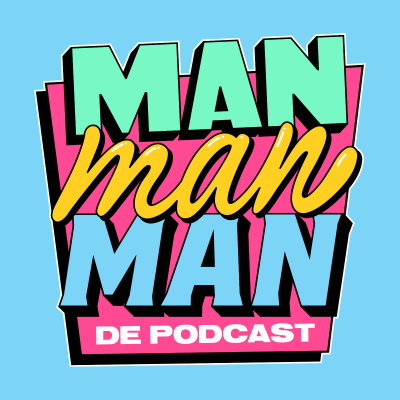
Luister naar Simplified Integration
Podcast door Dr. Andrew Wells
Dr. Andrew Wells of "Simplified Integration" shares a behind-the-scenes look at how to run a 7-figure practice while avoiding the "Seven Deadly Misconceptions of Integration," and how to experience true freedom though a Simplified Integration Process.
Probeer 7 dagen gratis
€ 9,99 / maand na proefperiode.Elk moment opzegbaar.
Alle afleveringen
36 afleveringenShow Notes: Speaker 1: (00:00) Welcome to the simplified integration podcast. This is episode number 35, how to replace your Facebook ad agency. Speaker 2: (00:10) Leonardo DaVinci once said that simplicity is the ultimate sophistication. And I agree you see the problem with the way that most consulting groups approach medical integration is anything but simple. In fact, it's the exact opposite. It's expensive, it's complicated. And quite frankly, it's exhausting enough is enough. There are far too many amazing integrated clinics that are struggling well. I'm on a mission to change that what I've come to find from over five years, working with integrative practices is that simplicity really is the secret. The old saying of less is more, is true through a streamlined approach. I was able to create multiple successful seven figure integrated clinics. And now I'm going to show you how you can do the same. Join me as I share with you the secrets to successful medical integration and practice growth. Join me on a journey to greater sophistication through innovation. I'm dr. Andrew Wells and welcome to the simplified integration podcast. Speaker 1: (01:09) Welcome back doc to the simplified integration podcast. It's great to have you here today. So today we have a special guest. Uh, usually these podcasts are just me spouting some, some knowledge and, and, uh, things I know about integration, but I'm really happy to have Sam Carlson on today. Uh, Sam has been a buddy of mine for about a year and a half, and, uh, the title of the podcast is how to replace your Facebook ad agency. And ironically, Sam has been my Facebook ad agency. Speaker 2: (01:39) That is a little ironic. I didn't even think about that one. Speaker 1: (01:43) True. And this is not a Donald Trump moment where I'm going to say you're fired, but, but I get a ton of questions from doctors on, Hey, who do you use for your Facebook ad agency? And, uh, and so Sam has, has changed and is starting to change the landscape for Facebook adage ad agencies. And I want to get into that in just a minute, but I wanted to. So looking back, um, I just thought of this late, uh, we're, we're recording this podcast in September of 20, 20 labor day just came and went. And we actually opened our practice eight years ago on labor day on Monday. And it, it, it brought back a lot of like, like painful moments in opening a practice. And when we first started, like we had a small, I got a small loan from my dad to, to like get the office built out. And he gave me 50,000 bucks and he said, here's, this is all you're getting and you better use it wisely. And hopefully it'll get some patients. And by the way, this, all this my dad said, uh, my dad was one of those guys that just didn't believe in chiropractic. Anyhow, he goes, and he goes, Andrew, listen, wherever. Right when I open the off, he goes, listen, just make sure when your patients come in, like help, don't completely fix it. So we have to keep coming back over. Speaker 1: (03:04) And that was my dad's strategy to a successful chiropractor business. So, so we had this like money to play with, to open our office. And we didn't have a ton of money for advertising. And, and, uh, like we couldn't, like we didn't have a ton of money. So we had to, we had to go out in the community and find patients. And it was really nerve wracking to me. It was like, we went from like 90 days opening and 60 days and 30 days. And I'm like, Oh my gosh, like we've got to get patients in the door. And so the weekend, that holiday weekend of labor day, we got permission from a, from a health food store to do screenings at the store. And they had two offices, one in the North side of the city, one in the South side. And so on Saturday, I went to one location. Speaker 1: (03:46) My wife went to the other one and we screened for eight hours, which is exhausting. And then, and then the day after that, we had a screening set up at Walmart that we like finagled our way in and two hours into the screening that the manager came up and she's like, yeah, you guys can't do that here. Like you gotta leap. So I kicked out, we got kicked out of our Walmart screening and, uh, we did a craft fair that weekend. So we screamed like, hell, it was like 30 some hours over that weekend. And thank God we had, we had 23 patients signed up new patients, signed up on the books for that week. And we converted like half of those. And so all of a sudden we had new patients, we had revenue. And, um, and I remember in the beginning, like that was like screening was really painful for us. Speaker 1: (04:35) I always felt awkward doing it. I didn't mind going through that pain. Um, cause I knew we would get patients out of it, but it was a lot of work. And for the first two years, we were always doing screening events and live events and talks, wherever we could talk about chiropractic, I would show up and I would get patients from it. And that was actually really good at screening. I just hated it. And for a long time for like, especially the first six months, that's all we did on weekends. We got, um, we got time off on Sunday. We'd go to church, we'd spend the rest of the, you know, the rest of our Sundays, just relaxing and preparing for the week. But we worked Monday, Monday through Friday, Friday afternoons, we were screening. And then Saturday, all Saturday we were doing screenings and events. Speaker 1: (05:15) And when Facebook came along, like Holy cow, we had our weekends back put like weeks instead of doing like six screenings a week, we would do, uh, or a month we would do maybe one or two. And it completely like Facebook completely changed my life in a really good way. And so my wife and I were able to take like short trips and we were able to, you know, kind of pull ourselves away from our, from our practice. And it was like, it was a game changing thing because, because with Facebook, what I realized that if you had really good Facebook ads, it was kind of like doing 24 seven screenings, right. If you had the right ad and, and so that's where, um, you know, where good ad agencies and good copy and offers come in. And so I just wanted to start with that story. Speaker 1: (06:03) And, um, if you could maybe just give us a little bit of a background on what you do and, um, and I'll preface it a little bit. I met you a year and a half ago. I, um, I was, uh, been reading through a bunch of Russell Brunson books and this name kept coming up. He's like, I worked with this chiropractor and this chiropractor ran these funnels and did really well. And I'm like, who the heck is this chiropractor? And then finally he said, one of his books, it's like the chiropractor, dr. Woolner. I'm like, ah, dr. Woolner. So I typed, I typed in dr. Vulner. I'm like this guy has got to know something he's working with Russell Brunson. And I, and I realized I actually been following him for awhile and then signed up for his map event, went up to Idaho. And that's where I met you, uh, dr. Wallner's event. So maybe if you can give us a kind of, a little bit of a background on, on what you do. Speaker 3: (06:52) Yeah. So, uh, you're a good storyteller buddy, by the way. That's a, Speaker 4: (06:57) I, I, you know, I get a visual Speaker 3: (07:00) Of watching you go and do those screenings. And it's really interesting because when I got into the chiropractic niche, I was actually a consultant. Um, I've, I've only, it's a long story. I'll keep it very short, but I've only been an entrepreneur. And so I've owned a lot of businesses and back in like 2000 and I don't know, 2014, 15, somewhere in that 15, I think in that time range, I was thinking about going and doing some consulting and a good friend of mine, Sonny who, dr. Sonic, Gail, who you've met. Um, I was at a birthday party and I said, Hey, I think we're going to go start a business consulting gig. And he said, no, don't do that. I said, well, we didn't know each other that, well, I was like, what are you talking about, man? And he goes, no, come work with me. Speaker 3: (07:47) I do consulting. And so I decided to do that. And I start in working with him. I started to learn how chiropractic works, how your businesses are structured, how to systemize them and, and, you know, just everything it takes to be successful. And one of the things that five years ago, we were teaching folks to do were screenings, and I know the [inaudible] and the anxiety and the stress and all those things that come along with, you know, with doing those. They're very, they're very effective, you know, there's no arguing that, but yeah, with the advent of Facebook and marketing funnels and just different things like that, there's, there's more options for docs to, to grow their practice. So, uh, yeah, we met at the, uh, at, at dr. Wallner's map event and, uh, I've known dr. Woolner for several years. I actually bought his program when I was consulting. Speaker 3: (08:46) Okay. Is his funnel program. And so it's, again, a lot of these little, you know, this spider web of, of people that you meet and, and then what you decide to do with it. And for me, um, I have, uh, you know, the sales and marketing background that I have created over years of being an entrepreneur were pretty extensive. And so I started helping our clients that we were consulting. I started helping them run their ads. And then before very long, I got really good at it. And I started just doing that. And long story short, I teamed up with my partner who is now Jacob, um, Jacob Morris, he and I, um, we're running an agency called twenty-fifth West. And we were doing a very traditional agency model where we would take clients, we would run their Facebook and Google ads. In most cases, those were the two platforms we were offering and we would create campaigns for them. Speaker 3: (09:44) And, uh, so that was kind of, you know, the, the long drawn out version. But today we've kind of, I mean, I'm, I'm, I think that you should always be looking for the future. What's next? What is the, um, you know, what is, what is the future of what you're trying to do? And sometimes that future comes a lot faster than others because, you know, because of events and we had in March, April timeframe, we had a pretty severe event, you know, hit the, hit the world with coronavirus and with coronavirus, we were forced to do something different. Okay. And basically what we ended up doing was innovating ourselves out of a job. Right. Speaker 1: (10:31) Are we get into that? Like, I think I want to, I just want to talk about where I think most doctors are right now with their Facebook ad agencies. And this is, um, this may be my own experience, but maybe you can tell me if this is right or not. So we had a Facebook ad ad agency, and, and like I said, like, I changed our life and we had patients coming in and we have to do any work. And, um, and then after a while, like we noticed that we had less and less leads coming in. And then we would like call her at eight. We would call an agency and say, Hey, it's not like we had 30 yet leads last month. We only had 15 and now we only have five. And so there was like this continual cycle of, um, of like ups and downs with Facebook. Speaker 1: (11:11) And I never knew, I never gave it much thought, but I never knew like, what w why that happened? Was it, was it ad fatigue? Was it Facebook changing their algorithm? Or were we not putting enough? Like, sometimes the solution was, we'll just put more money behind your ad budget and you'll get more people. Yeah. But, but it's like, well, for 500 bucks last month, we got this money. Why can't we get the same people for 500 bucks this month? And so I didn't, I didn't know, like, uh, if there was some like secret sauce or something on the backend that agencies were using to, to create good ads for people. And so I think what some doctors are doing now is they're seeing, you know, when their ads fatigue is that they start jumping around at different ad agencies, which I did like, I'm like, Oh, maybe, maybe this agency, but they'll have a really snappy ad or whatever. And I'd see it. I'm like, well, maybe we'll try this one for, for a few months and see how they do it. And then the same thing would happen. It'd be great for a couple of weeks. And then it would fatigue. And then, and then, and sometimes, and here's a D does that make sense? Speaker 3: (12:12) Yeah. Yes. You're, you're relaying the experience of 90% of the, of the clinics out there. Yes, this is true. Speaker 1: (12:21) And I remember what was frustrating for us was that we really felt like we had a really good dialed in front desk, and we were really quick at responding to ads. And when the ads started to fatigue, more than several times, we had agencies say, well, well, it's probably your front desk. That's why you're not, that's why you're not converting it. I'm like, nah, it's the same looks at the same people. And it's like, well, maybe you're not answering ads quick enough. And it's like, what, what ads would start to fatigue? I would notice agencies start to like, like the low hanging fruit is like, well, blame the client. It's like, if you're irritating and I understand that they were probably working with a lot of clients that had awful front desk and they weren't trained. And they didn't, you know, they answer ads a day late and stuff, but it was frustrating for us. And so that was one of the reasons why we were sort of agency hopping to find like, you know, we were trying to find the magic pill to keep this never ending stream of patients coming in and not have to worry about it. And, um, yeah, so that was, I think a lot of docs are stuck in that because, and that's why they're asking like, Hey, what's what, who are you using for Facebook ads? Cause they're, you know, they have those, those frustrations and pain points. Speaker 3: (13:37) We did a training last week. You and I, and one of the, one of the things that I shared in that training was a 100% true story. And I don't need to throw out names in such a public way right now, but there was a marketer, a digital marketer that created a course that basically sold the idea that, Hey, chiropractors are easy to sell. Okay. And if you just use these ads and these funnels you'll get leads, and then you can just go party. That was, I mean, that was the pitch. And Speaker 1: (14:09) That's a pretty good pitch, you know, Hey, easy money, Speaker 3: (14:14) Party lifestyle. That's a pretty good pitch, but it's not authentic and it's not true. Right. Right. And what you're talking about is, I mean, uh, marketing and, and working with, uh, working with online, working with a client and an agency is a dance and you're right. Not all front desks are created equal the same way that not all agencies are created equal, right. Because when it comes to turning an ad on and, and, you know, turning a funnel on pretty much, I mean, a lot of them will get really good success during that initial, you know, honeymoon phase. Right? The problem is, is the real work starts when you have, you know, a lot of, and there's a lot of different things. It can, it can be ad fatigue and B audience fatigue. It can be just complete neglect, you know, so there's a lot of things that can happen, but it's really the agency's job to deconstruct the problem and say, Hey, well, the problem is, is maybe, um, in fact, we had a problem this week where somebody had been posting a lot of content on their Facebook page about a certain, you know, coven thing that they shouldn't have been. Speaker 3: (15:35) And because of that, their, their account got flagged. And that was their business page. Their business page got flagged what gets flagged with your business page, all of your ad accounts that are connected to that business page. And so obviously this is going to con uh, this is going to affect their performance. So there is that dance, but just to kind of get back to the root cause, you know, there's a lot of, not all of them. I got friends that are in there in this business that are good people doing a good job. Um, but unfortunately there's just, there are because of that one event, that one person, that one digital company there does seem to be a lot of folks in this space that just kind of, you know, they pray on and it's, and docs are getting very wise to, to what's happening. And they may not know where it came from, but they recognize the symptomology. I'm telling you, it came from this one course creator. Uh, he did a very good job of selling this course. So, um, yeah. That's kind of the inception of that cycle that you are discussing. Speaker 1: (16:42) Yeah. Yeah. Like I've had a, you know, we've, we've been through a lot of ad agencies and I noticed that there are agencies that do a great job, especially on like the back end stuff and training offered resources and scripting, and like all the things that it takes to, to have a lead come into your office and kind of come into fruition. And then some agencies that were just awful, like no leads from the beginning, no leads in the end and nothing in between. And one thing I wanted to ask you, do you, and I hear this from doctors occasionally. And it's one concern that I have is like, do you think that Facebook is going to even be relevant in terms of advertising in the near future? Like, is that platform going to be around? Is it going to be, can you still use it effectively for leads? Is it, are we going to have to shift to another platform? Um, and particularly with, um, I've seen some, uh, some issues with docs being able to advertise for regenerative medicine, um, and, and maybe even like tightening down on a certain claims, um, weight, like weight loss as an example as well. What is Speaker 3: (17:50) Your take on that? Well, so there's two questions. So I, the first one is, is Facebook relevant and will it continue to be relevant? So really what we're talking about is where's the attention. Okay. You've got platforms, you've got snap, Snapchat, tick talk, uh, Reddit, uh, Twitter, Facebook, Google ad words. You know, you've got all these different platforms. And when you look at Facebook, Facebook, uh, the, the level of reach you have to understand, it's not just Facebook, it's also Instagram. It's also like different articles, different places throughout the, uh, throughout the internet. There's a lot of places where Facebook's ad platform gets reach. Okay. And the number of active monthly users I still think is, I mean, I think they have like 2.2 billion active monthly users. So I think, I think it's still relevant now what the future looks like. I mean, guaranteed, you know, tick talk has definitely made a surge in the last, um, in the last year, you know, you didn't hear much about ticktock before a year ago, but now it's making a surge. Speaker 3: (19:01) And so I'm sure, you know, that's, that's the cool part about living in a venture capitalist economy is there's always new things coming and whether or not Facebook is relevant three, four or five years from now, doesn't really matter so long as you understand what we're going after. And that is attention, right? What is, what is the best way to, to get attention and then to, and I would say Facebook is relevant as it's ever been, if not more. So, especially with the audiences that we're seeing. Cause cause the audience, the, the 35 to 65 seven, you know, the older audiences, they're not going on to Snapchat, they're not, they're staying put on these platforms. Um, so relevance, I think definitely it's, it's relevant. It will continue to be as far as terms and policies and just what will be allowed. That is a moving target. Speaker 3: (20:00) Right. Uh, but you know, so there's some things that they're never going to really want you to do. They're never going to want it to seem spammy. One of the problems that there's a, that there's issues with weight loss is because the history of weight loss, marketing, you know, it's very spammy. It's very, everything is before and after everything is very, Hey, you're going to be losing a hundred pounds in seven days. So there's a lot of hype behind these things. And so really at the end of the day, there's not a condition that we don't Mark it. It's just, you have to understand the approach to take, right? So for example, you talk about weight loss. We don't promote weight loss in the typical sense of, uh, you know, these, you know, crazy results with, in fact, we don't even hardly talk about results. Speaker 3: (20:52) We talk, we, we lead with new technology. A lot of times when we're talking about weight loss stuff, we talk about red light therapy or a true like body contouring or things along those lines. So what new technological advances are there available to users? That's going to hook them, right? Cause you got to hook their attention with something. And um, so long as it's not the same thing, then, then you'll be okay. Right. So, um, I do think that even though they do tighten down on what you can and cannot say, and even like, if you put an ad in that gets approved in one market, it might get disapproved in the exact same market, but at a different clinic, this is just part of scalability. This is how big the platform is. And we see ads that get disapproved and we just hit manual requests, you know, and they'll get approved five minutes later because they're like, okay, we just want to test you, make sure a person's there. So I think definitely, I mean, marketing for chronic pain conditions, uh, doesn't seem to have gotten any more difficult. Um, I think we've been pretty much in the same place for several years that we have been, you know, that we will be, I don't see anything changing there either. Speaker 1: (22:09) No, I know like sometimes doctors tend to focus on like the platform itself, like the algorithms and picking the right demographics and those things I know are really important, but I think even more important than that are just the fundamentals of sales. Yes. This is like, this is what initially attracted me to you. Was that was that you weren't talking about like the technology, not, I don't mean offer technology, but like the technology of how you're delivering your message, you were talking on the message. And I w I wanted you to, I think this is like, forget all like the platforms and patients, dream and agencies and all that. This is what I think really makes you unique in your space is, well, first of all, I, you understand our industry really well. The psychology of it, what patients are looking for, what doctors are looking for. But I want you to talk for a minute, if you will, about just good old fashioned salesmanship. If you look at old ads, like looking at an old ad for knee, like knee pain, like from 50 years ago, it's not that much different than an ad today. Cause it's like people have knee pain and they want to get rid of it. But I wanted you to maybe like talk about like what copywriting is, what sales is and what maybe the differences between that and it, and an offer in the clinic. And like how, like what some of the psychology that you use that goes into to your ads. Speaker 3: (23:35) Yeah. A ship and just the communication part of advertising. That is thing that I love most about everything, you know, coming up with concepts and angles is really important. But I think just, I mean, let's frame this around a problem that is very common. And so w I'll I'll have from time to time, people come and say, Hey, I want to promote, I was giving you an example. I want to promote leaky gut. Right. We were talking about this briefly before, uh, the podcast had a CA a client say, Hey, I would really like to focus on leaky gut and do you have something you can do for that? And I understand then the, the motivation of the question, but it is the source of all advertising problems, which is it's an inward looking out and stuff, have an outward looking in. And what I mean by that, that is stop thinking about what your, what you want. Speaker 3: (24:33) Like, I want leaky gut. So maybe I want, you know, autoimmune patients, you know, I want to get a lot of autoimmune patients stuff, thinking about what you want and stop, start thinking about the audience and what they want. Okay. So my question, my response back to my doctor was what is the condition that we're marketing? What are we going out? As soon as you start to identify and deconstruct that problem, then you can really start to frame that the conversation around providing new solutions. So I like, I like to make sure that we're focusing on a problem okay. That we have some kind of actual solution. And then when you're talking about, um, copywriting, you know, the more I learn about copywriting, the more I learn, the more I, I understand that copywriting is just about like unique ideas. Can you put it an idea in somebody's head that they'll say, Oh, I hadn't considered that before. Speaker 3: (25:35) Right. Um, I was, uh, I was writing an ad the other day and I don't have, I have, I have notes around my desk and w we were talking about level light therapy and in the context of helping people with neuropathy, and there was a couple of interesting facts, like, uh, I don't know if you knew this, but low level light therapy has been proven to help, uh, in about 97% of neuropathy cases in like dramatically reducing, um, symptomology. Right. I didn't know. Uh, and so that's, that's a pretty interesting data point, but then we got to start framing that around an idea. So if we hook them with that, we've got to say, well, well, what makes, what makes LLT low light therapy? What makes that so powerful? Like, what is, what is the concept? What is the idea, right. This whole idea of increasing blood flow or, um, you know, is it, uh, I, when I'm in deep co you know, copywriting phase, I'll get angiogenesis, is that right? Speaker 1: (26:47) Yeah. Making new blood vessels look at that Speaker 3: (26:50) Angiogenesis. And so, and what angiogenesis then leads to. And so if you take people down to these like Speaker 1: (26:57) Root solutions, then they'll extrapolate on their own Speaker 3: (27:02) And say, Oh, that's how you solve my neuropathy. And then all of a sudden, in their mind, you gave a visual possibility, right? So when you're talking about ads, you want to have something that hooks their attention. You want to have an idea. It's not about the individual words. It's about the idea that you frame that's different than what everybody else is doing. Okay. This is another reason why I'm in weight loss. If you talk about weight loss, okay. Just eat less. Or, you know, once an idea gets popular, like intermittent fasting is very popular right now. You're not going to become the intermittent fasting guy anymore. That that concept has sailed, right. Speaker 1: (27:46) Whoever created, who created that, by the way, um, do you know? No. Do you, Speaker 3: (27:52) No, I don't. I mean, the same thing with Kito, you know, it's like, uh, there was a guy, uh, there was a guy in Joe Rogan's podcast that was a KIDO guy, and that was a very novel. So these are all concepts and ideas they're going after the same result. Right. So when it comes to copywriting, copywriting is more of a creative, internal thought process where you look at a, at a audiences problem and find a way to just say, Hey, here's a solution you've never considered before. Right. And what, how can you package it to where they'll, they'll, uh, you know, they'll, they'll believe you and they'll want to take the net or they'll want to learn more. Speaker 1: (28:35) So that that'll make sense. So how do you, how are you taking that knowledge that you have on, on salesmanship and then actually making that work for, for doctors? So obviously, I mean, you're, you're, you see clients all across the country. I think you have a really good because of the position you're in. Do you have a really good idea of what types of services docs are offering? Um, what type of, of ads work and what, how they, and if they don't work, but how are you, like, how are you taking that and putting it into a doc, seeing more, more patients in their clinic every week? Speaker 3: (29:09) Yeah, that's a good question. So, um, so I'll give you an example. Um, about two and a half, three years ago, we were having just, I mean, marketing for STEM cells was so easy. Cause in and of itself was a unique and novel idea that was like, Oh cool. STEM cells. Yeah. Replace know that whole Speaker 1: (29:30) Sold itself. Yeah. Speaker 3: (29:32) But the old phrase, a tactic known as a tactic blown. So everybody comes in and now you're just, like you said, it's red ocean. You're a, me too. Yeah. Speaker 1: (29:42) You're, you're now an intermittent fasting world. Speaker 3: (29:44) That's exactly right. And so what do you do? Well, I had a, I had a client that we were doing a web call like this, and he had in the background, he had like a neon track. You know, what a neon track is. Yeah. Speaker 1: (29:57) Yeah. We have clients that use those they're also. Yes. Speaker 3: (30:00) So he had a neon track. I'm like, Hey, what is that thing? And he goes, Oh, that's called a neon track. Any, any had like, I'm a nurse, not a nurse, but you know, an assistant sit down in it. And I was, I knew immediately what it was. She sat down in it strapped her knee and I'm like, Oh, that pulls the knee apart. I didn't necessarily know how that, you know, help people with me knee pain, but I'm like, dude, I can Mark it that I know I can market that because it was a unique approach. So I'm always on the lookout for things like that. Okay. Um, whether that's, uh, you know, contour, light, pulse wave therapy, um, Oh, to therapy, different things like this, things that it just, when you look at him, you're like, Oh, it's curious. There's some curiosity there. And when you frame it right around a problem, it really has pole. Right. And so I've, I've become really, I hate to say I've become really good because that sounds conceited. He's conceited. Speaker 1: (31:01) I forgive you arrogance. Exactly. You know, Speaker 3: (31:05) I just, I feel like maybe I'm not the best at it, but I feel like when I, when I see something like that, like the neon track or something akin to that, I can create a framework that will get attention and make people want to take action. And so I've just taken that to anywhere in the chronic pain space, uh, the, the wellness community. And I'm always looking for little, little things like that and, you know, create more offers, test them. And they tend inside of that framework. They tend to work pretty well. Speaker 1: (31:40) We need to get neon track to sponsor this podcast. Speaker 3: (31:43) Those guys are awesome. Ergo flex. Uh, they, they did, they did what we should. Uh, but, uh, they're awesome. Their products are awesome. Their owners are awesome. They're just good people. So I can't say enough good things about that company. Speaker 1: (31:57) Interesting. You bring that up. I was just talking to a client this morning and he uses a neon track, knee compression in his therapy, and we've positioned it. Here's one of our tricks by the way, docs we've, we've positioned this machine. What a knee pain patient comes in. They go through an exam, they see the nurse practitioner. And then before they leave, we put them on knee decompression. And I was going over stats with a Dr. Day. He goes, he goes, you know what? He goes, I might hit, I don't know if I want to use this need on track machine anymore because I put patients on and on day one, Speaker 3: (32:27) They feel like Speaker 1: (32:29) Completely corrected their problem. They don't come back anymore. It's drawing is day one to day two conversions because this neon track was like, quote, fixing the knee problem. And, uh, I'm like, well, you know, he, he wasn't pre-framing it at all, but, but the machine works like I've. Yeah. He's, he's, he's ruined a couple of patients that way. Speaker 3: (32:50) What's cool about that is like, if you give somebody an experience, as long as, like you said, you have to frame out, Hey, what's happening. This is where education comes in. You know what I mean? Um, Dan Kennedy, uh, the late Dan Kennedy, he talked about, he actually consulted a lot with chiropractors. I don't know if you knew that I did it. Yeah. Yeah. Um, he, um, he talked basically education is the key to closing, right? Like, like the right type of education. And so I found that again, like if you're doing the neon track, just tell people what's happening. Right. If you educate them and then they match their subjective experience with the education you're giving, Speaker 1: (33:30) They're going to convert. I'm going to say yes, that doctor is telling me the truth. It's a tool. Speaker 3: (33:35) Oh man. If you do it right, it can be a huge tool. Speaker 1: (33:38) Yeah. I actually just, this morning created a script for that. Like how to, how to, cause we didn't have it. And I realized that like, some people just do it naturally, like, alright, you get on the machine and here's, what's going to do, here's what you should expect from the machine. And some doctors is like putting them on and not really explaining it. And then they would, you know, the patient had a bad result or like, Oh, that didn't work. I'm not coming back. Or they have a good result. Wow. That worked. I fixed that. They fixed me. I don't need to come back. But they were doing, they weren't, like you said, they weren't doing education. They weren't pre-framing. And um, that's yeah, that was a problem. I gotta call ergo flex and podcast sponsorships. They're great. People like, yeah, that's cool. I've sold a lot of their machines, their clients. Speaker 1: (34:19) So I'm like, dude, I don't care. They're great. They're helping me help people. It's a win win. Yeah, for sure. For sure. So I want to get into, now we talked about this a little bit in the beginning of the podcast on, on what you're doing to really, to change the Facebook ad agency business. I mean, when you, when you first told me this concept about patients Treme and explaining what it did, I'm like, man, you're going to like, you're going to put a lot of Facebook ad agencies out of business because you don't need them anymore. And maybe, and maybe I'm like overstepping that maybe that's an exaggeration, but, um, if you would just walk through like what you've been up to and on the, on the platform side and what, and like what you've been up to in the last few months or years, or however long this has taken you imagine it's been a bear to create, but what, what are you doing to change the Facebook ad agency business? Yeah. Um, yeah, Speaker 3: (35:19) So it it's interesting. I was a, at the beginning of the podcast, I said, we kind of have innovated ourselves out of a job. Right. And that's very true. I mean, we, we had, we had clients that were in this in one, you know, we're in the traditional agency side and now they're, they've kind of into this automated side. And so what happened was, I mean, my, my company's dynamic is I focus, like you said, I really focus on the messaging on the concepts, on the ideas that I feel if presented to the right people will convert them. Okay. And that's what I've been doing for years. So several years. And then Jacob is more of the, you know, he's a lot better at talking to computers than he is to talking to people. And so we're very yin yang and, and he'd been consulting with a development company and they had been working on these different ideas and platforms. Speaker 3: (36:18) And one of the things that they came up with was how to basically launch and manage campaigns without a person having to get involved so long as you had a couple of ingredients, right? It's not like, Hey, it's just gonna, it's not AI per se. Right. You had to give it proven ads and then proven marketing funnels. As long as you have those two elements, it could launch those in a strategic way. And then it could manage performance on the back end. And it just so happens. We had that right. We had those, we had those ingredients. And so we actually teamed up with this company and, and we changed the entire way of, of managing campaigns to where we uploaded stuff. We know, work into our new software. And now it basically does the job of an agencies. And it does have a couple of drawbacks. Speaker 3: (37:13) I mean, it's awesome. It's amazing. Uh, it makes it so you can launch your own ads and we say doing just three clicks and it really is, you know, there's three different clicks. You click what condition you want to market. You click, uh, what your daily budget is. And then you click publish campaign. And that's crazy. There's no getting in Facebook, there's no choosing or, or writing ad copy. And you know, there's, there's no, it's just all done for you. Right. And so we created this thing now. It doesn't. So the limitations are, I mean, custom, you know, so there is space always. I don't have a beef against agencies. I think there's some that do not need to be in the agency, in the agency business a hundred percent, you know, but I've got some good friends that I think are great. People offer a good service. Speaker 3: (38:08) And when they have a good fit with a client, it works and they do a good job. And when it comes to like custom, you know, custom stuff, whatever it is, you know, we, we now are able to offer what we're doing at a really low cost, but you're using basically templates campaigns. Okay. And so they're done for you. You, don't got to think about, and you just got to think, Hey, what is, I want knee decompression patients. We've been talking about, you know, the neon track. I want knee decompression patients, you choose needy compression patients. You tell your daily budget and click publish, and then boom, it'll go out and start advertising and, uh, you know, generating new leads. So it's kind of hard to, it feels like it's, I feel like sometimes when I articulate, I try to explain it to people. They're like, wait a minute. So it sounds too good to be true. Like you, listen, it's not, it's not all sunshine. And, and uh, you know, what does it sunshine and lollipops or what Speaker 1: (39:11) Sunshine, rainbows unicorns. One of those. Speaker 3: (39:13) Yeah. It's not all that. I mean, there's some down again, you know, we, we, uh, we're, we don't do custom campaigns. And so, uh, if you want to change the offer from $47 for this thing to $97, that's not something we can do. Um, but it's offering, I mean, it's, it's growing quickly, which we're excited about. And, um, it's offering a really unique solution. And I guess the crux of it is it puts the power in the control of your advertising back in your hands. You choose when you run ads, you choose. If you want to turn them off, if you want to switch from needy compression to spinal decompression, you choose to do that. So I don't know. I don't know if, if that, if, if I left any holes, but that's kind of the gist of what it's doing. Speaker 1: (39:58) I like that. Cause what I think what it allows doctors to do is say, all right. Yeah. Like let's, let's pick a condition, whether it's back pain or knee pain or regenerative medicine. And Hey, Mary, at the front desk, let's do a Facebook ad this week. Let's put 300 bucks behind it and see how it does. I like the fact that you can delegate that to somebody without having to call up an agency, tweak things. There's some, let some time lag there, but also you can delegate that to your staff to do for you. And the other thing I didn't think about, I just kind of crossed my mind is that also there's some, I think when you have a doctor or an office app actually going in and clicking the buttons at hitting, like start on a campaign, there's a little bit more ownership over that campaign that, alright, we just move some money over and we hit go. Speaker 1: (40:43) And I think there's a little bit more, um, maybe willingness to track their stats. Cause I know I'm guilty that guys, like we've had ed ad agencies and we just give them a monthly ad agent, a monthly ad budget and their agency fee. And we just let it go. And we're not like really tracking our, your ad spend and our cost per our cost per lead. And I think by doing this, it may actually get doctors to actually do their stats and figure out like, well, we spent 600 bucks this month. How many new patients did we get in from that ad and start to play with their ad numbers. So I liked it. I liked getting the doctor involved with it without having to know how to run a Facebook ad. Speaker 3: (41:21) Yeah. Right. And the cool thing about it is, you know, you have that there's so patient stream really is two macro components. One is lead gen lead, lead generation, and then the other is lead management. So the lead gen is a proprietary tool. We created it. It's ours, it's nobody else has it. And then the lead management tool is, you know, there's a lot of lead management tools out there and things that our people are using. Um, but what we've been able to do with our lead management tool is we've been able to plug the two of them together. So they become basically one. And so when your campaigns start running, they plug into prebuilt followup campaigns, you know, and, uh, we had one user, um, Michelle Sims, hi Michelle, if you're listening, I love Michelle. Since she, she and her husband, Scott they're out of Nacadocious Texas say that one, that's kind of a mouthful, but, uh, she came on, she was one of our first pilot users and she's super smart, really good. Speaker 3: (42:25) And she started using the platform immediately. She's a sharp lady and she knew what she was doing because she had used other products like it before. And she went from spending three hours a day in lead chasing a reactivation efforts and all those things to spending less than an hour in a day and booking their calendar out for like during the whole COVID thing, it's still kind of happening for three weeks and they're booked out three weeks that had never happened to them. And that was happening in the midst of COVID. And that's just because she understood that it, it's not just about lead generation. There's also a lot to management side, but management is hard. It's a lot of work, you know? I mean, when you guys first started doing Facebook ads, I'm guessing you got like a spreadsheet of ads or maybe just a single notifications. Is that how you guys did it? Speaker 1: (43:24) Yeah. Yeah. Very manual, very manual. And it's a pain in the butt. It is not only to keep up with and be, have the discipline to keep up with it, but then also to follow up, to follow up with it. And then how do you follow up with it? The numbers. Yeah, that's the, that's the hard part. And that's, I know from experience and working with lots and lots of docs, that's what they're not doing. Either don't know how to do it. Or, um, they, they just, they get tied up with other things. Speaker 3: (43:53) It's the habits, you know, it's our habits, our habits are okay. I know I got a new lead. I know I got to call it, but 48% of leads never get called the first time. So 48%. Okay. And then this is the scarier stat, 80% of your sales come between the fifth to the 12th contact. So if you start doing some math, think about the amount of leads you're going to have to generate to get one patient. If you're not willing to do the followup, you know, the math starts to get really, really scary. But if you, Speaker 1: (44:28) I have a tool that will help you in that, that we'll do a lot of it for you manage it, reach out to him, Speaker 3: (44:35) People and people are now reaching out to you. You can take a job, that's a full time position and reduce it to again, you know, less than an hour a day, if done well, if done properly, Speaker 1: (44:46) Man, that's crazy. That's solving such a huge issue for clamp, for offices, for clinics. Yeah. That's amazing. We're excited about it. You know, I mean, we've gotten Speaker 3: (44:58) This whole thing started in, um, you know, right around the beginning of the whole Corona nonsense, nonsense. I don't know if anybody is taking offense to nonsense, but a little bit of nonsense. Okay. I think we can all agree. Yeah. Speaker 1: (45:12) You're talking to chiropractors mainly, so. Okay. Very good. Speaker 3: (45:16) Um, and I mean, we've got now about 100, not about, I think we're at 99 users today. And so, you know, maybe tomorrow, maybe by then today we'll be at 100, who knows, but it's growing really fast. We really care about our users. Um, and that's not a sales pitch. I mean, I've got a, a Facebook group and I go in there every single day and I'm either posting or I'm seeing if people have questions and we've got awesome support. Speaker 1: (45:45) Um, it's really Speaker 3: (45:46) Exciting. It's a lot of fun. Um, and I think, you know, I think it's only gonna get better. And again, we're adding, like you said, so we, we do a lot of conditions. I love going after the ad angles. That's what I mean. I like helping people and talking, but if you think in the, in the creative space, what do I enjoy doing is coming up with new offers. I enjoy coming up with new offers. And so, um, that's, that's kinda my role and we've got a bunch of, you know, different conditions that people can target immediately just by, just by plugging into it. So we're excited, you know, to, Speaker 1: (46:25) So I know that, you know, with anybody, like there are certain clients that, that you're like, Oh yeah, I can really help this doctor. And there are certain doctors like, yeah, this probably isn't for you. Like, if you can speak to the doctors listening to this right now, like who is your ideal client? So if someone calls you and says, Hey Sam, can you help me with XYZ? And you're like, check, check, check. Like what, what would that, like, what are your kind of ideal clients that are like sort of home run clients? Yeah. So, um, you know, Speaker 3: (46:52) There's, there's always the business owner that wants, um, wants to save money and saving money. Isn't the best reason to do things, right? You, you need to have a fit and we're not a fit for everybody. When you, when you speak, we've actually, we had a, some new members sign on within the last two Speaker 1: (47:12) Weeks and then cancel. And he said, Oh, I thought this was more, um, Speaker 3: (47:17) You know, more hands on and hands on from a perspective of, we were going to get in and click, you know, launch campaign. Speaker 1: (47:24) I thought we made it easy enough, but you know, some people, they, they just want it done for, they really want to pay the Speaker 3: (47:30) Money and just have it done. Okay. There is, there's definitely space for agencies to get in and do that service. We are not an agency. We are a software. So you need to log in. You need, well, you need to turn your computer on. You need to log in and you need to, you know, be willing to get your hands into the system, right. You need to be willing to, you know, if somebody is, is texting, Hey, can I learn more about your neuropathy program, answer them, you know, so that's a, that's a big piece to this. Um, and then the other thing is we are somewhat limited by, um, varying our offers. You know, we want offers that go into patient stream. We want them to be proven, okay. So if you say, Hey, can we try and offer that this, that, and the other, first of all, if it's not a good offer, we're not going to try it. Speaker 3: (48:25) You know, and we have kind of a track record of knowing what will work and what doesn't work. Um, if it is a good offer and you have a track record of it running in, you know, in your clinic and, you know, I'm always excited and willing to look at that type of thing. Okay. So, because we're limited by, you know, just time and the amount of people we have that create creating an offer that works is an art. Okay. It's not something I can delegate to somebody it's something that me and my team we have to do. And so we are, um, you know, some of the functional space, so diabetes and thyroid conditions, um, those were kind of more difficult because there's so many varies varying approaches to solving those problems, right? If there's uniformity, we can create an offer that works, um, you know, event marketing is great for, um, for diabetes and thyroid conditions, autoimmune conditions, things like that. Speaker 3: (49:25) And I think once things start to open up for events, again, that those will be a bigger part of the platform. Um, but anyways, so we are limited by some conditions. We've got a lot of great ones. If you're a chiropractor, we've got plenty of stuff for you. If you're an integrated clinic, we've got plenty of joint conditions, um, you know, um, body contouring, things like that and neuropathy, um, things along those lines. So it's not a, you know, it's not a silver bullet. We didn't create a magical wand that we're just giving to everybody there is work involved. Um, we want you to get in and get educated, get involved with our group and with our community. We want you to get some marketing and sales skills and, uh, we give you a lot of training. And I mean, we do three trainings every single week, uh, between me and the staff. That's a weekly basis. And we're, we're doing that because there's a machine that runs people's ads. So instead of focusing on that, we can focus on the people and just really see, Hey, anybody who's willing, we can bring your game up and we can do it quick. So basically, yeah, Speaker 1: (50:32) You have this computer running everything, and now you've got to get out of the house and find something to do. So you're just training the heck out of doctors, right? Yeah, man, Speaker 3: (50:40) You know, it's funny cause um, we do three trainings. Two of them are pretty much, um, my, uh, my, our trainer, Heather, I'm sure she gets bored, but they're the same training almost every week. And they're just making sure that people have foundational, um, understanding and utility of the platform, uh, different things. And then mine is, you know, whatever I want it to be. And it's usually marketing and sales tactics and, or funnel tactics or whatever it is. Uh, so I enjoy doing it. It's, it's, it's a lot of fun. So it's fun. Yeah. I mean, I get to get out of the house and not focus on the stuff that is no fun. And I get to focus on the stuff that is fun. Speaker 1: (51:19) That's awesome, man. That's awesome. Well, yeah, you're, uh, you're, you're combining like really good, I think offers an ad's and, and really good technology. And I think, yeah, man, I'm really curious to see how this is going to play out in the Facebook ad sphere in chiropractic, because it's so much the wild West right now. And you have, you don't really know. I think docs have a tough time, um, knowing who's doing who's good and who's bad and they hop around and, and hopefully this will give some kind of, uh, some continuity to what, what doctors perceive as a highly variable form of advertising. And I'm excited for you. I'm excited for your clients, uh, to be able to sort of somewhat automate their ads and, and, uh, and do it in a way that, uh, you know, it doesn't break the bank and not having to spend, you know, two, three, four, $8,000 in Facebook ads, ad agency fees and get some more money in their pocket at the end of the day, which is important. Speaker 3: (52:17) That's very important. Yeah, no, we're excited. I think some, like I said, I'm not against the agencies and I think by us offering the service, well, what will happen is some, you know, some innovation on their part, you know, some, some new solutions to different things. You know, I mean, how many people are focusing on, on physical mail anymore or, Speaker 1: (52:38) Or YouTube ads, there's hardly any, Speaker 3: (52:39) Anybody focusing on these things, you know, um, and doctors need them, you know what I mean, doctors need these, these different avenues for attention. So I, I think it's going to be, um, even if we were to take a huge swath, which we're not trying to ruin anybody's business, we're trying to help. Uh, and, but I think what it will do is just elevate everybody else's game. And if we can help your business get more, uh, you know, have, uh, get more new patients and grow and do it at a lower cost. I think that's a good thing to do. Yeah. Yeah. Speaker 1: (53:16) I mean, it's just a natural progression of technology and, and, and services advancing and becoming more efficient and better at what you do. And yeah. Yeah. That's awesome, man. Well, thank you for your, for your time. And you know, I was really excited to have you on the podcast. I don't have a whole lot of guests come on. Um, but I wanted to have you come on, first of all, so people can see how great of a bald head you have. Uh, you have like the perfect bald head. There's no debts. My wife told me other day, she's like, you better not lose your hair cause you would not look good. And maybe while I'm growing my hair out, like you never know until you actually do it. It's a gamble. It is a gamble. I remember when I first did it, I was like, Oh boy, but it worked out. Speaker 1: (54:06) So yeah, no, but I have my hair massive. I have ears that stick out to call me elf. I got, I'm still self conscious about yours. So if I go bulk, Oh boy, what a bunch of jerks. Those people were. I'm sure. You'll look great. Bald. If you ever come onto the team, I'll stick with hair for now. And if I have to work when it happens, there you go. Awesome, man. Well, Sam, thank you so much. Oh, and by the way, if people listening, if you want to know more about patient stream, what it can do, if this makes sense to you, what is your, what's the best way to connect with you? Yeah. So Speaker 2: (54:48) Just go to our website, which is my patient story. Speaker 1: (54:50) I mean.com, check it out. I mean, we've got, you know, we've got a trace and video of kind of how it works with that emotion on it. Um, if you go to the top, there's a pricing button. You can kind of dive more into the pricing and stuff, but yeah, my patients stream.com. Awesome. We'll go check it out. Docs my patient stream.com. Sam, thanks so much for being on here today and giving us your, uh, your knowledge and your time. I really appreciate it. And uh, yeah. Thanks man. Uh, and thanks guys for tuning into another episode of the simplified integration podcast. We hope you found this beneficial and we'll see you on the next episode. Adios. Speaker 2: (55:30) Hey innovators, thanks for listening to the simplified integration podcast fact that you're listening tells me that you're like me, someone who loves simplicity and the truth is those who embrace simplicity are some of the greatest innovators. So hope you got a ton of value from what we covered on today's episode. Be sure to subscribe and share with other docs that you feel could benefit from greater sophistication through simplification and innovation. If you've got specific questions that you'd like answered on this podcast, or you've got specific topics that you'd like me to discuss, just shoot me an email at info@integrationsecrets.com that's info@integrationsecrets.com.
Show Notes: Speaker 1: (00:00) Hey innovators. This is dr. Andrew Wells. Welcome to this simplified integration podcast. This is number episode number 34 is your coach coaching. Leonardo de Vinci. Once said that simplicity is the ultimate sophistication. And I agree you see the problem with the way that most consulting groups approach medical integration is anything but simple. In fact, it's the exact opposite. It's expensive, it's complicated. And quite frankly, it's exhausting enough is enough. There are far too many amazing integrated clinics that are struggling. I'm on a mission to change that when I've come to find from over five years, working with integrative practices is that simplicity really is the secret deal saying of less is more, is true through a streamlined approach. I was able to create multiple successful seven figure integrated clinics. And now I'm going to show you how you can do the same. Join me as I share with you the secrets to successful medical integration and practice growth. Join me on a journey to greater sophistication through innovation. I'm dr. Andrew Wells and welcome to the simplified integration podcast. Speaker 1: (01:10) Hey doc, great to have you on the podcast today. So I'm not a huge sports fan, but the one thing I like about sports, like whether it's professional baseball, basketball, football, soccer, is that it's extremely democratic in the fact that if you're, if you do well in the sport, you stick around and you make a lot of money. If you don't do well, you're out really quickly. So it doesn't matter what your education is. It doesn't matter what your, the color of your skin is, your religion, your personal beliefs, either you perform or you get the heck out. And I love that about sports. It's just, it's very black and white. And, um, and I just think that that is the appeal to me about sports is that it's set up that way. Now, I had an interesting call with a doctor, uh, two days ago, and he, we were talking about integration and we're talking about the concept of paying consulting groups, upfront fees. Speaker 1: (02:05) And this episode sort of dovetails with my last episode and how I really urge doctors not to pay big upfront fees. There's a lot of reasons for that, but he, um, the doctor, I was speaking to over the phone, integrated through one of the big integration companies, pay them a bunch of money. And he said within two months he was like two or three months. I think he had learned everything that he could learn from this integration company and was left to figure out a lot of the details on his own. And he's done okay with integration. He's still integrated. It's been six years. And he did. Okay. So now, uh, he said one of his friends called him and was also interested in integration and he was also going to go through the same company and he said, listen, you're gonna, you know, you're going to pay them a lot of money up front, but within five months, you're going to learn everything that you can learn from this group. Speaker 1: (02:50) And they're not gonna be able to teach you anything else. It's very basic. So a lot of the advanced skills and the advanced knowledge, you're not going to get. And so their friends, Oh, okay. Whatever. And, and sure enough, the guy integrated through the same company, this guy got the call from his friend and said, you know what? You're right. Five months in. I can't learn anything else from this group. Now the problem with this is that. And I talked about this on the last podcast episode, is that the problem with paying consulting groups upfront is there is no motivation for them to teach you how to get to the next level or to teach you some of the nuances and advanced administrative and management and leadership skills that you need to really make an integration office work. And when you have the problem is also when you have 300, 400, 600 different clients, who's teaching the doctor, how to I run an integrated practice. Speaker 1: (03:43) I can almost guarantee you, it's not somebody who's ever run a successful integrative practice. And that's the problem. So when you jumped on board with these companies, oftentimes you're given a manual that spells out like how to run an office. But oftentimes you have to read in between the lines and this like, sort of templated way to integrate. Doesn't always work for everybody. And the reality is as unique need a coach, you need a, a man like a consultant or a management group to walk you through. Not just how to start the company, but how to build it and scale it effectively. And that's what doc like most doctors are expecting. They're going to get when they integrate, but they just never get. And so when it comes to integration that easy part, this is what I really like. I really try to instill in doctors and, and most doctors believe it. Speaker 1: (04:32) When I, when I, when I say this and I say it multiple times to doctors, the easy part is getting started. It doesn't take a lot of work to set up a medical entity, to find a medical doctor, to find a nurse practitioner, to get credentialed. In fact, you hire people to do those things for you. It doesn't cost a lot. That's where most integration companies get you. They, they give you like the therapies to bill. They help get you set up. That is the easy work. It doesn't take a lot of knowledge and skill to do that. The hard work starts once you're open. What happens when a new patient walks through the door? What therapies do you offer? How do you build care plans? How do you bill insurance, compliantly, what therapies should you be offering? How should you do your advertising? So there's all kinds of nuances and skills that you have to learn. Speaker 1: (05:21) Like how do you train a front desk staff to do their job effectively? How do you train a case manager? How do you eventually step out of your role as the provider and run an office as an owner and a business manager? That's the stuff that takes months, two years to learn. You can't learn it in a couple of months. So where most doctors run into a wall as they they're integrated and they have the services they want to offer, but they can't figure out how to make it run effectively. They can't make it learn how to make it run cost efficiently. So maybe they're barely, barely making a profit or just breaking even. And if you're integrating and you're just breaking, even like, it's a lot of work to do that. So it's not even worth it. Uh, Mo a lot of doctors, I recommend not even integrating because they have a false expectation of what integrations all about. Speaker 1: (06:02) But what I'm trying to say is that running a successful office takes years to develop effectively. So if you think you're going to learn it in six months and be a pro at it and make a ton of money, it's a lot harder than you may think. And so my question is, and who is coaching you through that process? Do you have somebody that you can call or text or email that will answer the phone and be able to walk you through that process based on experience. And so just like in sports, like if you're, if you're a coach, isn't doing their job, they're going to get fired. If they don't produce a winning team, they get fired and they get replaced. So what happens when your office isn't thriving? Can you fire your management company? Can you get your money back? Chances are you can't, which is again, why I say don't pay big upfront consulting fees, because if your office isn't running the way you're expecting it to you, can't really fire the consulting group when they've, you've already paid them the full amount of money that they're asking for. Speaker 1: (06:58) And so the way we've structured our business is like a true, almost like a sports company. So we get paid as coaches and consultants based on how well your office produces. So if you have a really successful office and it's screaming and doing really well and profitable, like we win in that and we make a lot of money doing it, doing, uh, doing that. However, if your office flops or you're not making money and it's not successful, then we don't make money on that. It's a, it's a failure for us as well. So we've set up our consulting business, uh, so that we have skin in the game. Right. Then the nice thing about that is it's, it's almost like a true partnership where we're not, we don't own the office, but we're in it with you. So it's in our best interest to make sure that we're coaching you and developing you and developing your team and your staff and giving you smart strategies, things that have worked for us and other offices that we've worked with. Speaker 1: (07:49) And so we're in the same boat and we, our job is to coach you through that. So there are a lot of benefits to that, which means that we have to be accessible. So I'm known as the doctor, like if you text me at 10 o'clock at night, if I'm still awake, I'll text you back that night to give you answers to questions that you have, uh, when you first launch your business in most cases, uh, we're there, when you physically in your office helping coach you and your team through the launch and startup phase of your practice. Uh, so we actually show up on your front door and get into the nitty gritty details of your office and how to launch successfully. Uh, we're on the phone with you. We do zoom calls, uh, we're very accessible. So we have the, you know, we have the binder of information on here's, how to integrate your office. Speaker 1: (08:32) But the most important part is that you have access to doctors who are in the trenches, who know the pitfalls and the failures, and also know the successes and what it takes to run an office like that. So we've, we've structured our business, just like, again, like a sports team, we're incentive if you win. And so if you don't do well, we don't do well either. So we think that's the way to operate a consulting and a management group. That's how we've set up our business. It wasn't always that way. I used to charge upfront fees because I just thought that was the way that you do it, because that's the way that other companies did it. Uh, but I realized that it's a lot smarter to do it, um, uh, uh, to have skin in the game. So that's my take on coaching. Um, I hope, uh, you know, if this is something that resonates with you and make sense to you, and if it's something that if integration is something that you're considering, uh, I'd love to talk with you, give me a call. Speaker 1: (09:24) Uh, you can, uh, you can email me@awatsimplifiedintegration.com. That's a w@simplifiedintegration.com. And I'd love to have a chat with you about either fixing your integrated company, your integrated office, or if you're new to integration, I'd love to walk you through the, the steps and the processes and how to get started. So, thanks for joining me today on a simplified integration podcast. I hope you have a fantastic day and we'll see you on the next episode. Hey innovators, thanks for listening to the simplified integration podcast fact that you're listening tells me that you're like me, someone who loves simplicity and the truth is those who embrace simplicity are some of the greatest innovators. So hope you got a ton of value from what we covered on today's episode, be sure to subscribe and share with other docs that you feel could benefit from greater sophistication through simplification and innovation. If you've got specific questions that you'd like answered on this podcast, or you've got specific topics that you'd like me to discuss, just shoot me an email at info@integrationsecrets.com that's info@integrationsecrets.com.
Show Notes: Speaker 1: (00:00) Welcome to the simplified integration podcast. This is episode number 33, stop paying for consulting upfront. Leonardo de Vinci once said that simplicity is the ultimate sophistication. And I agree you see the problem with the way that most consulting groups approach medical integration is anything but simple. In fact, it's the exact opposite. It's expensive, it's complicated. And quite frankly, it's exhausting enough is enough. There are far too many amazing integrated clinics that are struggling. I'm on a mission to change that when I've come to find from over five years, working with integrative practices is that simplicity really is the secret deal saying of less is more, is true through a streamlined approach. I was able to create multiple successful seven figure integrated clinics. And now I'm going to show you how you can do the same. Join me as I share with you the secrets to successful medical integration and practice growth. Join me on a journey to greater sophistication through innovation. I'm dr. Andrew Wells and welcome to the simplified integration podcast. Speaker 1: (01:09) What's going on doc. It's great to have you here on the simplified integration podcast. Thanks for joining me here for another episode. So today we're gonna talk about the concept of paying for consulting fees or management fees upfront. And just so, just so we're clear, I have flip-flopped on this issue and I'll explain why I've done that and, and why I do things the way we do now. But I want to, one of the things that really there's two things actually that brought this to my attention. Um, and I want to start off with a story recently. Uh, if you look across my, um, our street, our neighbor decided last winter to build an in ground pool. He has a bunch of grandkids, he and she, and they, they like the grandkids to come over and they wanted a pool for them to swim in. Speaker 1: (01:57) So the guy, um, hired a pool contractor and a company to come out and they paid him some money to build an in ground pool. Now, this was last November of 2019, and I'm currently recording this podcast in September of 2020. So pay them some money. Contractor came out, Doug, uh, dug a big hole in his yard and, um, started the whole process in November of building the pool. Well, December came and the contractors weren't there. He just had a hole in the ground, uh, January, February comes and there's still no progress on the pool. And my neighbor's like, Hey, I know I keep calling this pool contractor and he's not showing up. I really want this pool to be ready in the springtime. So my grandkids can swim and we can have a good time while spring comes around and still like no sign of the contractor. Speaker 1: (02:43) And then finally, one day this pool truck shows up. They drop off a bunch of supplies that they leave, and then they didn't hear from the pool contractor again for another couple of months. So winter has come and gone. Spring has come and gone. Summer is finally here. I go to my neighbor and I'm like, Joel, where does this pool company? Like, you should have your pool by now. And he was like, he's a super nice guy. And he was like, he was pissed. He was like, man, he goes, I don't know what to do. I can't get ahold of them. They keep saying, they're going to show up, but they always have an excuse, like it's bad weather. Or, uh, one of the employees quit or like, there's always something going on. And I said, well, like, hope you haven't paid him for this. Like, why don't you just fire them and hire a new company? And he goes, well, that's a problem. He said, I paid the whole thing upfront because they gave me a discount and I'm like, Oh man. So the problem is this. Guy's got like the pool company has all his money and they have zero motivation now to deliver on the things that they promise. Speaker 2: (03:42) And so this guy is stuck. Speaker 1: (03:43) You know, he, he can like, he can Sue the company, but then he's got to pay attorney fees and all that. He's like, he's like, you know what? I just have to be patient. I realize I'm not getting this pool by summertime. And it's just a huge mess. And so I feel really bad for the guy. And so alternatively, so we have a pool as well. And this spring, we took the cover off the pool and we looked in there and there's a huge crack of the bottom of the pool. And the pool is like 20, almost 20 years old. It's getting pretty old. And we called the pool contractor and he goes, you know what? Uh, by the way, we had the same problem last year that we patched the crack and patch the hole. And it was okay for a year, but it happened again. Speaker 1: (04:20) And the pool guy is like, he goes, listen, this is going to keep happening unless you completely resurface the pool. So we had to bite the bullet, um, hired this company to completely resurface the pool. So they took all the old, like concrete and material out and they were going to come in and retail it and resurface the whole pool. So the difference between how we approach that with our pool company is that we agreed on an, um, a contract that we only pay the contractor for, um, a percentage of the contract based on what work they complete. So for example, if they completed 25% of the pool, we give them 25% of the fee. So we didn't pay anything upfront. We just paid as we went and typical with pool companies is that these guys, you know, they're, they're working on multiple pools in different States and it was tough to get these guys to show up. Speaker 1: (05:10) And, uh, and we, so we had, we had to stay on them. We even like enticed them with, with lunch. Like, Hey, if you guys come out today, my wife's gonna make you guys a lunch and we have drinks and coffee and all that for you guys. And, uh, and so the guys came out and, you know, they did a really good job. And the funny thing is here, here's the deal. The pool company completed 95% of the work. They still haven't. This is spring, it's now fall. They still haven't put in the railing and they were supposed to change the light that's in underneath the pool. And they still haven't done that. So guess what? They haven't received their last check. And so until they complete the job, we're not paying them in full, but we still have full use of our pool it's they actually did a really good job. Speaker 1: (05:48) We're swimming in it. It's really nice. Um, but the difference is we didn't pay him up front. And so they still had skin in the game to complete the job. And although they haven't finished, we can still use it and we're not hassling them. Cause we still owe them several thousand dollars to put in the railing and the light. Um, but for the most part, that thing is done. So the huge diff the only difference is, uh, the different companies, but the only difference is how we paid the contractor to do the work. Now, the problem with healthcare and the problem with consulting in any field, whether it's healthcare, business, whatever is that the contractor has to have some skin in the game. And here's the problem I'm seeing with, with healthcare integration or medical integration, is that you have several what I call big box management companies that charge a really steep upfront fee to teach you how to integrate and to teach you all the protocols and how to run an integrated office. Speaker 1: (06:41) And that's all fine. And well, but what's happening is, is that clients and chiropractors are paying 40, 50, 60, 80, over six figures, a lot of money to contract and companies upfront with the expectation that they're going to deliver a really quality and high level of service to their doctors. And more times than not, that's not happening. And the reason I know this is I talk to doctors every single week. Over the last year, I tallied up the number of, um, docs I talked to who integrated, who paid a really high upfront fee, and then felt like the service that was delivered afterward, didn't meet expectations. And a lot of these doctors were, um, successful people, but they either struggled with their, with their integration. They gave up on it, they went bankrupt, or I just kind of limping along and barely getting by. And the management company or consulting group was like, Hey, we gave you the protocol. Speaker 1: (07:40) We gave you the system. It's, it's your fault. Like you're not doing a good job or, or here's the other thing is, well, it seems like you're struggling. Maybe you should come to our next live event at the live event. You go, you know, you go to the seminars and basically it's just a huge sales pitch for all these vendors that are supposed to help you fix your problem, or they have a solution to the problem that you're dealing with, whether it's a staffing problem or a billing problem, or a therapy problem, like there's always an upsell. There's always something that they can sell you on. And the reason they have to do that is because they didn't deliver a high quality of service upfront and why should they, you've already paid them all their money. Like there's no incentive for them to help you be successful or help grow your practice or increase revenue or streamline your expenses. Speaker 1: (08:26) There's no motivation for that. And so one thing that I would highly encourage you to do is look for, look for groups who, um, and by the way, let me back up for a minute. When I first started consulting, that's the way I did it. If you wanted to learn our systems, you gotta pay a chunk of money. And that's how we operated. And the more I talked to doctors, and the more I realized what the real pain points are for doctors, the more I realized like that system actually doesn't make a lot of sense. In fact, it makes doctors really nervous and scared to come on as a client because they're worried that that's going to happen with their office is that there's going to pay me a bunch of money, and I'm just going to hop to the next client and then hop to the next client, never really delivering a good, a good value for clients. Speaker 1: (09:08) And so I really, you know, after this pool incident, and then after, you know, after looking at, at what doctors are really needing and what they're wanting, we changed our system. So now, if we teach you integration, we don't charge these big upfront fees anymore. We actually don't charge anything upfront. And so we take you through, we take you through the integration process. We onboard you. We help you launch your practice. We help develop your practice, but we get paid on the backend. So if you do well, if your clinic does well, guess what we do well, also, if your clinic flops, then we flop right alongside you. We don't make any money. And so we actually have real skin in the game to deliver on the promises that we've talked about upfront, because you all have expectations, doctors, you know, they want to integrate because they want to make more money. Speaker 1: (09:55) They want to help more patients. They want to have a sellable asset later in their practice. And so if we can't deliver on that, then what's the use. And so many doctors have jumped into integration because they were promised the world and they just couldn't figure out how to make it run. And the problem with integration is integrated offices. They're difficult to run. They're not easy. And people say, well, your company is called simplified integration. And the reason it's called that as we do make it easier, but it's not easy by any stretch of the imagination. So if you're walking into integration and saying, all right, I got my 200 page manual. This is how to do it. I can, I can read and follow instructions and everything will go smoothly. Like you're in for a surprise. That's not how integration works. Integration is, you know, it's, it's a, it's a heady game. Speaker 1: (10:39) You have to roll up your sleeves and get to work, to learn the processes and, and build a good team and make sure that you can, you know, you can take care of your patients at all the little steps that are necessary to run a successful integrated practice. It's a lot. And so we're not a, you know, we're not what we consider a big box management company. We're very selective in the clients we bring on, we don't bring on a ton of clients and we do that. So we can focus on really developing your practice in your clinic to be successful and to reach the goals that you originally set out, uh, when you first integrated. So that is my, uh, position on paying upfront consulting fees. I used to do it the other way. We have switched because we realized that it's a lot more valuable to us and to our clients to do it, um, to do it, uh, in a different way. And so it takes out a lot of the upfront risk. It's a, it's a lot more, um, there's a lot more of a sense of security for clients doing it that way. So that's my take on it. Um, thank you for tuning into the podcast and we hope to see you on the next podcast episode. This is dr. Wells signing out. Have an awesome day. Bye bye. Hey innovators. Thanks for listening to the simplified integration podcast fact that you're listening tells me that you're like me, someone who loves simplicity and the truth is Speaker 3: (11:54) Those who embrace simplicity are some of the greatest innovators. So hope you got a ton of value from what we covered on today's episode, be sure to subscribe and share with other docs that you feel could benefit from greater sophistication through simplification and innovation. If you've got specific questions that you'd like answered on this podcast, or you've got specific topics that you'd like me to discuss, just shoot me an email at info@integrationsecrets.com that's info@integrationsecrets.com.
Show Notes: Speaker 1: (00:00) Welcome to episode number 32 of the simplified integration podcast. This is dr. Andrew Wells, our niches, the way to go Leonardo de Vinci once said that simplicity is the ultimate sophistication. And I agree you see the problem with the way that most consulting groups approach medical integration is anything but simple. In fact, it's the exact opposite. It's expensive, it's complicated. And quite frankly, it's exhausting enough is enough. There are far too many amazing integrated clinics that are struggling. I'm on a mission to change that when I've come to find from over five years, working with integrative practices is that simplicity really is the secret deal saying of less is more, is true through a streamlined approach. I was able to create multiple successful seven figure integrated clinics. And now I'm going to show you how you can do the same. Join me as I share with you the secrets to successful medical integration and practice growth. Join me on a journey to greater sophistication through innovation. I'm dr. Andrew Wells and welcome to the simplified integration podcast. Speaker 1: (01:09) Hey, what's going on doc. It's great to have you here on the simplified integration podcast. Thank you for joining today. So today we're gonna talk about niches and I've been in practice for about 10 years, and I've noticed a huge trend in chiropractic, and that is doctors are getting into what we call niches. And if you're not familiar with what niches are, niches are sort of sub health categories, um, and therapies and programs that doctors are offering such as, um, weight loss or neuropathy or functional medicine or, uh, regenerative medicine. Those are all considered niches. And I want to address the topic of why docs, why I think docs get into niches in the first place. And I want to ask you like one big question. If you look at the difference between like, what is the big difference between chiropractors and physical therapists? So if you, if you forget the set aside like philosophical differences for a moment, or whether whatever your opinion is about physical therapists, like set that aside for a second, but what's the big difference. Speaker 1: (02:12) Like we see the same types of patients. We see people who have chronic pain. Um, we see acute injuries. We take both take care of spinal related issues. So there's a lot of crossover between chiropractic and physical physical therapy. What's the, from a practice standpoint or a business standpoint, what do you think the main difference is? And I'll give you my opinion on this. Um, and just observations of our profession and physical therapy over the years. And I think the one major differences is that physical therapists tend to stick with physical therapy. They don't really branch outside of, of that, um, specific type of therapy and what they learned in school. Yes, you see some people that specialize in certain parts of physical therapy, or you have your doctors of physical therapy, but for the most part, most physical stick to physical therapy. Whereas when you look at chiropractors, if you go on most chiropractic websites, chiropractor, don't, don't, you do just practical. Speaker 1: (03:08) A lot of chiropractors specialize in two, three, five, 12 different types of services. And there's a reason for that. So if you look historically at, at, um, insurance reimbursement, that's the big driver between the two. Now, back in, you've heard of the Mercedes eighties back in the seventies, eighties, nineties, there were some pretty decent reimbursement for chiropractors. So if you had patients that came in, you could do an exam, go through a series of adjustments and get paid reasonably well for the services that we provide. However, in 2020, and even over the last five and 10 years, uh, insurance reimbursement for chiropractic has just been slashed or completely eliminated. A lot of offices have gone cash. Some offices do a, you know, majority cash, some insurance, and there are still some States that pay decently for chiropractic, uh, services and adjustments, but that's even going away. Speaker 1: (04:00) Um, comparatively you look at physical therapy, the coding and reimbursement for those codes have stayed relatively consistent. Now, yes, uh, insurance companies are starting to nickel and dime even physical therapists, actually all doctors across the board, but you can still make a decent living doing physical therapy if you're a physical therapist. So because in our profession, we don't have that stable reimbursement, and it's really tough to make the living that most doctors are expecting out of their doctor title or, you know, all the work that we put through and the amazing care that we give to patients, we have a certain level of income expectation, and because we're not getting that through traditional, uh, commercial insurance or Medicare, it's tough to make a living. So chiropractors have had to go outside of our, our standard profession to find supplemental income. And that's where niches come in. Speaker 1: (04:51) So if you look again like 15 years ago, there, there weren't a whole lot of niches in chiropractic. Maybe you're a chiropractor and maybe you did something like, um, nutrition, right? Like 15 or 20 years ago that might've been somewhat kind of like a niche. But now again, if you look at most chiropractic websites, you have doctors doing all kinds of different types of therapies. And so is it a good thing or is it a bad thing? And I will say that it's both, it's good because you know, chiropractors should be able to, to provide, uh, a wide array of services and help patients in a lot of different ways. Like, for example, if you, you know, you talked to a chiropractor who, who does weight loss, the argument could be made that well, weight loss is important to chiropractic because if you have extra weight, it puts stress and, uh, gravity pulls on your joints and it leads to injuries, bad joint, health, pain, subluxation, subluxation pressure on the nerve system. All those things are true. So it should be in a chiropractor's best interest to get weight off their patient. Um, and so, and you can, I guess you could argue for, you know, for the rationale to do all these different types of niches and therapies, but the problem Speaker 2: (05:59) Is that a new name Speaker 1: (06:00) Which will come out and I'll give you an example of this. And, and I think this is a good program, but there's a problem with it is if you look at like the neuropathy niche or neuropathy protocols that are out right now, fantastic protocols, great pro a great system to implement a neuropathy is definitely within the wheelhouse of a, of a chiropractic office. But the problem is, is that when it was first introduced, you know, there are doctors making a ton of money on it because it was new, but the problem is there's a really low barrier of entry. So once doctors figure out that there is a profitable system that they can implement in their practice with the, with, uh, not a whole lot of barrier of entry, then all these doctors jump on board and start doing neuropathy. So for example, where I live, there are like three or four doctors who have these big signs up saying we help with neuropathy patients, and they're all doing the exact same neuropathy program. Speaker 1: (06:50) So what happens is doc start running the same Facebook ads and the same newspaper ads. And they do the same seminars. They do the same programs. And all of a sudden everybody's fighting for this limited, uh, type of patient and your demographic and fighting for the same patients. And if you give that program two or three years or four years, eventually it gets watered down and it gets diluted. And so then what happens, a new niche comes out and then doctors realize, Oh, I can make a lot of money doing, um, doing, uh, a red light weight loss. And so doctors buy these, like these, uh, fat burning, like red light laser machines and put that in their office expecting to make $50,000 a month for the rest of their life. And then all the other doctors jump on board and start doing that program. Speaker 2: (07:36) And so what happens, the problem with niches is that, Speaker 1: (07:39) Especially if it's a low barrier of entry, it's really easy to get into when docs realize that it's profitable. Um, they all jump on board and then it ruins it for everybody. Speaker 2: (07:49) And that's like that. If you look at the Speaker 1: (07:51) Trends in niches, you'll see that doctors, look, if you ever hear testimony, videos from doctors who said, yeah, I tried this program and it was great. My first month I made $80,000 or my first month I made $60,000 ask them what their stats were two years down the road. I can guarantee you, it's not 80 or 70,000. It's not the same stats they were doing the first month. Because again, they have more competition they've eaten through their market. There's only a limited amount of patients that can, that can see those types of, uh, or that have that type of need and are looking for high ticket cash, uh, type of therapies. And so what happens is doctors end up every like two or three years cycling through a new niche and doing a new program and then another new program. Speaker 2: (08:37) And the problem is, is that it distracts, Speaker 1: (08:39) Tracks you from what your primary purpose is being a chiropractor. So all of your energy and your, and your marketing dollars and your efforts and your staff training go into learning these new systems, but then it takes away from chiropractic. And so doctors are really caught in this, like a, it's a double edged sword, right? You can make more money with niches, but you're taking away from your primary source. And then it also leaves you constantly searching for the next type of niche. That's the problem with niches. And so I'm not, um, and I'm not like I've been through. I know because I've done all these things. Like I've tried all these niches and every, every year or two years, I had to find a new niche. And so I'm not saying it's a bad thing, but the problem is, is you're always, flip-flopping from different, uh, different types of therapies, and you're never known in your community for being good. Speaker 1: (09:25) At one thing, you become the person who is always offering the newest gimmick or the newest, like flashy gizmo that you can offer in your practice. So you never become the, uh, like the hallmark place in your town for getting rid of, let's say back pain or, or helping people live healthy lives. Like it's, it's a, it's, it's a confusing message to deliver to your patient base and your community. And so you never become like that. Uh, um, that true, like center of excellence for getting people healthier, that true center of excellence for getting people out of pain. And so if you're looking at, and most of the doctors I talked to are looking for, um, ways to increase their income, they're looking for ways that they can do that without having to do all the legwork or all the physical work, to be able to automate certain processes or delegate certain tasks to their staff. Speaker 1: (10:17) But they also want to save for retirement or maybe create an office that they can sell down the road or pass down to an associate doctor, a cell. And if you're in the niche game, it makes it very hard to do those things because you're always flip-flopping from, from service to service. And so I want to wrap up this podcast with saying like, yeah, you know, if, if you're looking five years down the road, if you're looking 10 years down the road, you should have your eye on the services that aren't trendy, that aren't gimmicky are going to last the stand the test of time. And so, uh, you may know that I'm very much into regenerative medicine and I do medical integration. Even within that realm, there are niching things with integration that I really try to steer doctors away from, but we always angle toward services that offer a good benefit to patients are not niche-y. Speaker 1: (11:07) So you can still rely on them 10 years down the road, and you can also rely on them. So you can build an actually skill, a practice, and actually develop a true business. That's going to stand the test of time. So that's my thought on niches. I hope this provides some perspective on our profession and maybe compare comparing it to other professions and so ways that you can really build, um, on a, on a really solid and reliable platform to build and grow a business. So thanks for tuning in doc, uh, really happy that you joined. I hope you got some valuable information out of this podcast. Hope you have a great day and we'll see you on the next episode of the simplified integration podcast. See ya. Hey innovators, thanks for listening to the simplified integration podcast. The fact that you're listening tells me that you're like me, someone who loves simplicity and the truth is those who embrace simplicity are some of the greatest innovators. So hope you got a ton of value from what we covered on today's episode, be sure to subscribe and share with other docs that you feel could benefit from greater sophistication through simplification and innovation. If you've got specific questions that you'd like answered on this podcast, or you've got specific topics that you'd like me to discuss, just shoot me an email at info@integrationsecrets.com that's info@integrationsecrets.com.
Show Notes: Speaker 1: (00:00) What's going on innovators. Welcome to the simplified integration podcast. This is episode number 31. What I learned working alongside the world's top neurosurgeons, Leonardo da Vinci once said that simplicity is the ultimate sophistication. And I agree you see the problem with the way that most consulting groups approach medical integration is anything but simple. In fact, it's the exact opposite. It's expensive, it's complicated. And quite frankly, it's exhausting enough is enough. There are far too many amazing integrated clinics that are struggling. I'm on a mission to change that when I've come to find from over five years, working with integrative practices, is that simplicity really is the secret feel saying of less is more, is true through a streamlined approach. I was able to create multiple successful seven-figure integrated clinics. And now I'm going to show you how you can do the same. Join me as I share with you the secrets to successful medical integration and practice growth. Join me on a journey to greater sophistication through innovation. I'm dr. Andrew Wells and welcome to the simplified integration podcast. Speaker 1: (01:11) What's going on guys. Welcome back. It's great to have you here on the podcast. My name is dr. Wells hope you're having a great day today. So before I became a chiropractor, I had a really cool job when I was 25 years old, I worked for a company called brain lab. And my job with brain lab was to go around the country and around the world and work with some of the top neurosurgeons and helping them integrate a cutting edge technology that this company made. So we made a equipment called neurosurgical navigation and what the equipment allowed us to do in the operating room was make a tumor resections and biopsies brain biopsies and brain surgery, a lot safer and a lot easier for the patient and for the surgeon. So the equipment that we were using was very cutting edge. It was extremely expensive. Speaker 1: (01:56) And most of the doctors who are using this were in like your top notch facility. So they were in teaching institutions. Um, these were not like your local, uh, neurosurgery centers. And so because of the level of technology we were working with and because of the cost of the equipment, I got to work with a very, very, uh, elite group of doctors. Now, when you're working with neurosurgeons, they are sort of like the doctor's doctor, like you to become a neurosurgeon. It's incredibly competitive. You have to be incredibly brilliant and talented, and it's a very tough gig to get. And so these doctors I was working with and imagine I'm a 25 year old, like little kid out of college, um, didn't know much about the world at all, but here I was working in the operating room, literally shoulder to shoulder with these neurosurgeon neurosurgeons and helping them implement this technology into their, into their surgical practice. Speaker 1: (02:50) And I got to see some wild stuff. Uh, I remember the first time I saw brain surgery, you know, I walked in, this was part of my training. I walked in the operating room and the doctor knew it was my first surgery. And, you know, he, uh, was taking a, to removing a tumor from the patient's brain. And he, I remember the first time he took the, the skull off part of the skull off. And he had, you know, he had drilled in using like what looked like a power drill from home Depot drilled into the patient's skull, remove the skull cap. And here is he's like, Andrew, check this out, look at the brain, see it, see it pulsing. And you could see, like, I could see the brain, it looked just like it was wild and you could see it like pulsing with every heartbeat. Speaker 1: (03:29) And it was like, it was trippy and really cool to see. And so that was my job for, uh, for a number of years, I went around the country and worked with doctors in the operating room and I learned a lot. And so I noticed some patterns over time and, you know, these patients would have cancer, they'd had tumors and I was always really curious, uh, about, um, why the patient got sick and how they ended up having a tumor and what, you know, what the outcome was going to be and what they're actually going to do in the surgery. And, uh, some of these surgeries lasted a long time and they were really boring and sometimes like, there's a lot of standing around for me. Um, and so I remember particularly working with a doctor, um, outside of Chicago and really bright guy. Uh, they had imported this doctor from Israel, um, like super young, very charismatic, sharp, uh, neurosurgeon. Speaker 1: (04:23) And I, you know, I worked with him for about a month and I had a lot of conversations with him in and out of the operating room and always wanted to know like, why, like, why did this patient get sick? Why do they have a brain tumor what's going to happen to them? And he'd always say the same thing. He was like, well, we don't know where it came from. Um, probably a bunch of different reasons, but, uh, that's not my concern. My concern is that I need to take this tumor out and keep the patient alive. And then I'd ask, well, what's going to, you know, what's going to happen to the patient. And it, um, you know, especially for certain types of brain tumors and cancer, it was oftentimes really grim. And this doctor would usually tell me, well, you know, we're, you know, we're giving him about six months to live. Speaker 1: (05:01) Um, they'll likely have to have another brain surgery, but we don't anticipate that this patient's gonna live for very long. So my question was always, well, why are you doing this major surgery if they're not going to live anyway? And he said, well, maybe we can give them another few months. And maybe if they're really lucky, another extra couple of years of life and maybe give them use of their hands again, or maybe because of the tumor was pressing against the speech center, they couldn't talk. So we could give them the, you know, removing the tumor would help the patient speak again. So there was a quality of life aspect to it, but Speaker 2: (05:30) Mmm, Speaker 1: (05:33) For a lot of these patients, the outcome was really bad. And my thought going into this job was I'll be working with this amazing surgeons and they're going to be performing these miracles and the patient's going to be healthy again. And they're going to remove the tumor and get the patient well, and they'll live, you know, live happily ever after. But what I realized in a lot of cases that we saw as these patients were terminally ill. And when they, when they got the point of seeing these surgeons, usually it was too late. Like they were too far gone and we saw some pretty cool miracles, but for the most case, it was a pretty somber place because we were dealing with terminally ill patients. And it caught me thinking like, so I'm working with some of the top, like the most talented doctors in the world yet they could do very little for the patient. Speaker 1: (06:20) And that always like that always disturbed me. And that made me feel really sad because it's like, well, if they're, if these doctors are so great at what they do, why can't they do get the best outcomes for the patients? And I asked the doctor, this, this doctor I worked with in Chicago. I said, well, you know, you're performing these surgeries, but it sounds like not these patients aren't going to do really well. And they pay you millions of dollars a year. This, this doctor was very, very into what he did. And sometimes he slept at the hospital to take on cases and people that needed help. Like he was very dedicated to his work, but he was also very honest. And that, you know, if you, if you're seeing me, if you're, if you're going under my knife, your chances are it's too late for you. And so I asked him like, why are you doing these surgeries? Like, why do they pay you millions of dollars? Why is the insurance company going to pay $200,000 for a procedure that's going to end eventually in the death of the patient, in the near future. And Speaker 3: (07:15) Like, so w so I kept asking him Speaker 1: (07:18) These questions over and over again. You know, he initially would just kind of shrug off the questions. And I remember finally, one day I'm asking these questions during surgery. And he, I remember he looked up, he looked up at me, which he never did. And it's got a cauterizing tool in one hand and a little sucker tool in the other. And he said, Andrew, he goes, this patient has cancer. Do you really think I can fix the patient with these tools that I'm holding in my hand, a cutter and a sucker. Do you think that's going to make the patient healthy again? And I said, no. He goes, you're absolutely right. He goes, you can't cut a person back into health. And that's what I do. My job is to remove the tumor, help them stay alive as long as possible. But after that, it's, you know, it's up to them. Speaker 1: (08:02) And I was very shocked by that. And I remember after the surgery, I'm like, listen, like, is there really nothing else you can do for the patient? And he looked at me and he said, Andrew, listen. He goes, these people who end up on our table, they have trashed for the most part, had trashed their health, their whole life. He goes, this is offended me as a man, as an American, he goes, you Americans eat fast food. You're stressed out. You work too hard. You smoke, you drink, you don't, you don't exercise. And you wonder why you lose your health. And for some reason, patients come into my operating room and expect that I'm going to give them back their health. After they've destroyed their body for there for an entire lifetime, it doesn't work that way. And he didn't, he knew a little bit about me and my family. Speaker 1: (08:46) Like I told him my family, I come from a really unhealthy family. And he, I remember him telling me, he goes, Andrew, if you, if you live the same way your parents lived and the people around living or living the way most Americans are living, you're going to end up if not on my table, somebody else's table being operated on, is that what you want? And I said, no. And he goes, he goes to use this as a learning lesson live differently than Americans. If you don't want to end up on my operating table. And I'm like, man, that's that made so much sense. And so he, this guy totally blew my world, rocked my world. And I'm like, man, this is, this is nuts. So at the peak of our healthcare system, I realized that we have very few options for patients. And so I went home that night and I thought a lot about what the surgeon had told me. Speaker 1: (09:32) And I started researching what health was, where health came from. You know, my, my thought was, well, health is just genetic either. You're you have good genes or you have bad genes. And that's the way you're, you know, you're, you're doomed to have heart failure or doomed to have cancer, or you're blessed to live a hundred years to live to a hundred without any sickness or disease. And I realized, and just doing my own, um, you know, Google research that health had was a lot more to do than your, a lot more to do with your genetics. At one point, I remember like researching this stuff for like two, three in the morning, and I kept scrolling through, you know, different pages and different pages and different threads. And finally, I ended up on this website and it said that, um, this there's this quote that said, um, you know, the greatest doctor is, is within you. Speaker 1: (10:19) And you have all of the tools that you need for your body to be healthy. You just need to, to remove interference and to give your body what it needs to thrive. And you'll be healthy. I'm like, well, that makes a whole lot of sense. Like, what is this website? And I realized that I'd fallen on a chiropractic website. And at the time I thought chiropractors are quacks. I'm like chiropractic. Like this makes no sense. And then, so I went back to where I was, I was still working with a surgeon and I said, well, what do you think about the chiropractic notion that your body will work just fine, as long as you don't interfere with it. And he looks at me, I'm like, I'm like, do you believe in chiropractic? And he looks at me and goes, he goes, they're dead. Right? He goes, you just need, you just got to stop trashing your body and give it what it needs to be healthy. Speaker 1: (11:00) They're a hundred percent correct. And he goes, in fact, if more people saw chiropractors, less people would be on my table. And I'm like, well, aren't chiropractors quacks. He goes, no, he goes, it makes perfect sense. And they're, they're actually teaching true health. And I'm like, wow. So this guy was from Israel. Like, how does he know this stuff? But he's like, yeah, more, more people should use chiropractic care, um, in order to be healthy. And so I latched onto this idea. I latched onto this philosophy and I'm like, man, so chiropractor, I did some research on chiropractic. I went, uh, one of my best friends visited a chiropractor. I thought he was dumb for doing it. I thought I always told him he was wasting his money going to a chiropractor. So, you know, being curious, I went with him one day and, and I talked to his chiropractor and everything. Speaker 1: (11:43) He said made complete sense. And he showed me what chiropractic was and how it worked and how it affected health and how it kept people from being sick and being diseased. And I'm like this complete sense. And so three days later, I quit my job. I enrolled in chiropractic school and the rest was history. And so I'm telling you guys this, because, um, sometimes, you know, I get flack as a chiropractor for running medical offices. Um, like, like somehow I've sold out on chiropractic and all this nonsense, but, um, I'm a, you know, a firm advocate of chiropractic. I know the benefits it's helped me out tremendously. I've helped thousands and thousands of patients get healthy through chiropractic care. So I know the value there. However, there's also value in the medical world and what we try to do with integration as we try to merge the two in a way that makes sense for chiropractors, but also makes sense from a medical standpoint. Speaker 1: (12:37) And so there's a, you know, I always thought it would be great if you could somehow merge these two worlds in a way that was beneficial for the patient. And it doesn't have to be so black and white, where over here, you have your chiropractor's and over here you have the medical doctors and they can't ever share patients. It's, it's a two diverging, uh, philosophies and it, it, it can't ever coexist. Well, the reality is, is that in almost every area of life, there are shades of gray and there's complimentary crossover between the two and I'm living in a world. And I see a world where chiropractors and medical practitioners actually work really well together. When you drop the ego and drop the, you know, these preconceived notions we have about chiropractic and medicine, you actually find out that we actually want the best things for our patients. Speaker 1: (13:23) And if you're, if you decide to integrate your office and medically integrate, that doesn't mean you have to prescribe medications or give cortisone injections or refer to surgery right away. There's a way to help patients in a conservative way. So, anyway, doc, I hope you found this topic. Uh, interesting. You know, I really had a really amazing, um, an interesting career before I got into chiropractic and I actually found chiropractic through neurosurgery, believe it or not. And so there are a lot of really key lessons I learned from my time with working with some of the best neurosurgeons in the world. Um, not only was it really fascinating, but it taught me a lot about what health is, but more importantly, what health is not. And so we really, we owe it to ourselves as doctors to help our patients avoid those types of those types of scenarios and to help them avoid all the pitfalls of, of modern medicine. Speaker 1: (14:13) And there are a lot of them. And so our job is to keep, uh, educate our patients and keep our patients from ever getting to that point. And so, um, thank you so much for, uh, for tuning in today to the podcasts. Uh, I hope you learned something from this, uh, or at least maybe have a different perspective on our healthcare system or chiropractic the amazing work that we do as chiropractors and, uh, anyway. Great to have you out here today. I'll see you on the next podcast episode. Have a great day. Bye bye. Hey innovators. Thanks for listening to the simplified integration podcast. The fact that you're listening tells me that you're like me, someone who loves simplicity and the truth is those who embrace simplicity are some of the innovators. So hope you got a ton of value from what we covered on today's episode, be sure to subscribe and share with other docs that you feel could benefit from greater sophistication through simplification and innovation. If you've got specific questions that you'd like answered on this podcast, or you've got specific topics that you'd like me to discuss, just shoot me an email at info@integrationsecrets.com that's info@integrationsecrets.com.
Probeer 7 dagen gratis
€ 9,99 / maand na proefperiode.Elk moment opzegbaar.
Exclusieve podcasts
Advertentievrij
Gratis podcasts
Luisterboeken
20 uur / maand



















